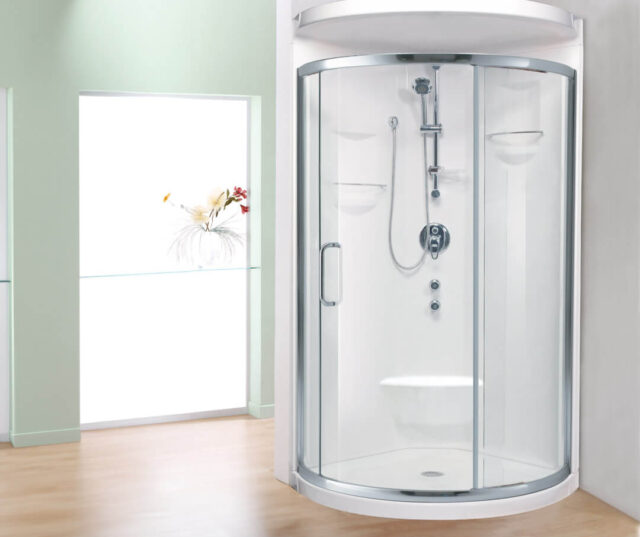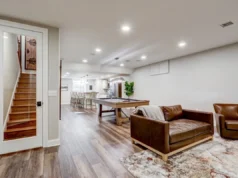Upgrading a bathroom can be a tricky balance between practicality and aesthetics. Prefab shower kits, often labeled as a quick-fix solution, are increasingly popular. But are they the right fit for your home?
Here’s a breakdown of the benefits and limitations to help you decide.
Key Points
- Pre-made units simplify bathroom upgrades with minimal effort.
- Cost efficiency is their main appeal, but quality varies.
- Design choices can feel limited for custom preferences.
- Quick installation makes them ideal for DIY enthusiasts.
- Suitability depends on your bathroom’s specific needs.
What Are Prefab Shower Kits, and Why Consider Them?
Prefab shower kits are factory-made solutions that come as ready-to-install units. Typically including walls, a base, and sometimes doors, they eliminate much of the hassle associated with custom tiling. Designed to fit standard dimensions, they’re widely used in rentals, guest bathrooms, or quick home renovations.
Their growing appeal aligns with a rise in DIY home improvements. According to Remodeling Magazine, bathroom updates ranked among the top three most common projects in 2023. Homeowners often appreciate how prefab kits make significant upgrades accessible without requiring a contractor.
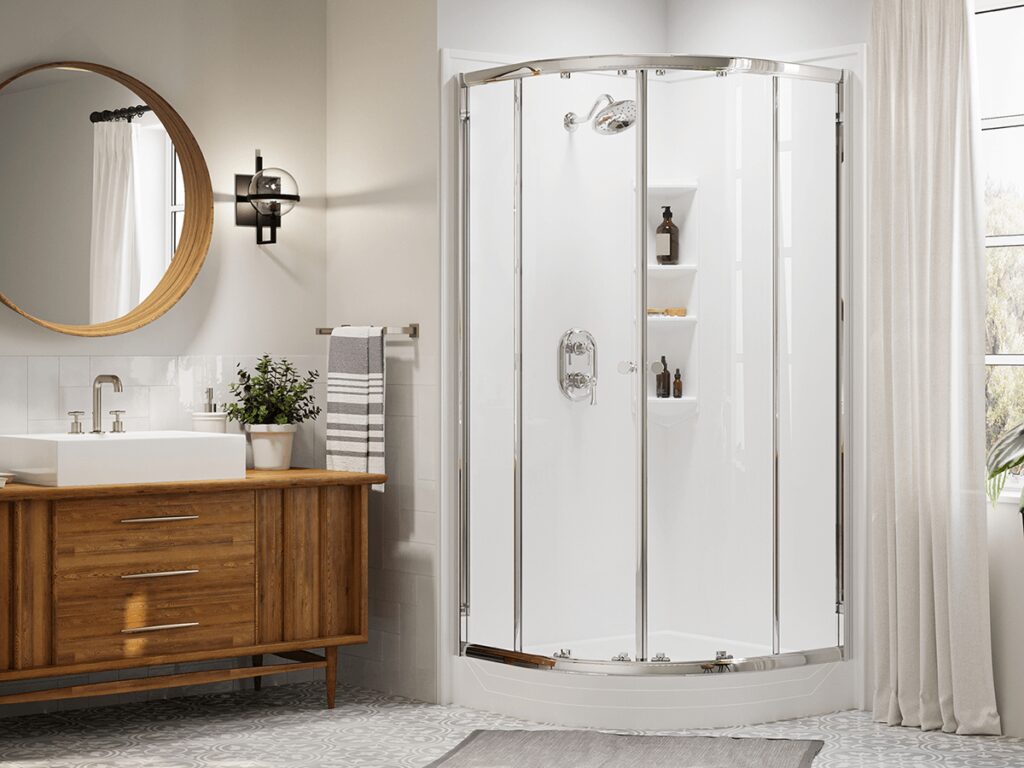
Benefits of Pre-Made Shower Units
Pre-made shower units offer several appealing benefits. They are often the go-to choice for those who want to modernize a space without diving into a full custom installation. For anyone curious about how they simplify renovations, you can learn more about pre-made shower units and their advantages.
1. Affordable and Accessible
Budget constraints often make custom bathrooms unattainable. Prefab kits typically cost 50-70% less than bespoke installations, offering value for cost-conscious renovators.
2. Speed of Installation
Time is often a deciding factor. With clear instructions and pre-measured panels, installations can be completed in less than a day. Compare that to weeks for custom work, and the convenience is undeniable.
3. Low Maintenance
The seamless construction found in many pre-made units minimizes grout lines. That translates to fewer places for mold or mildew to develop, making upkeep simple and stress-free.
4. Great for Temporary Solutions
Prefab units shine in temporary setups, such as guest bathrooms or transitional housing. They’re quick fixes that serve their purpose without breaking the bank.
5 Installation Tips for Pre-Made Shower Units
Proper installation ensures your pre-made shower unit lasts and performs well. Follow these tips to avoid common pitfalls:
- Prepare the space ─ Clear the area of debris and inspect for any structural issues, such as uneven flooring or old plumbing that need replacement. A smooth, clean surface is critical for a proper fit.
- Read instructions carefully ─ Each kit has unique assembly requirements. Take time to review the manufacturer’s guidelines before starting, as missing a step could lead to leaks or instability.
- Check plumbing connections ─ Ensure that all plumbing is correctly aligned before attaching the base. Misaligned pipes can create long-term problems and may require professional assistance to fix them.
- Seal the edges ─ Use high-quality waterproof caulk around the edges of the unit to prevent leaks. This step is often overlooked but is essential for maintaining a watertight seal.
- Test for stability ─ After installation, step into the shower and test for any wobbling. Secure any loose parts immediately to avoid future damage.
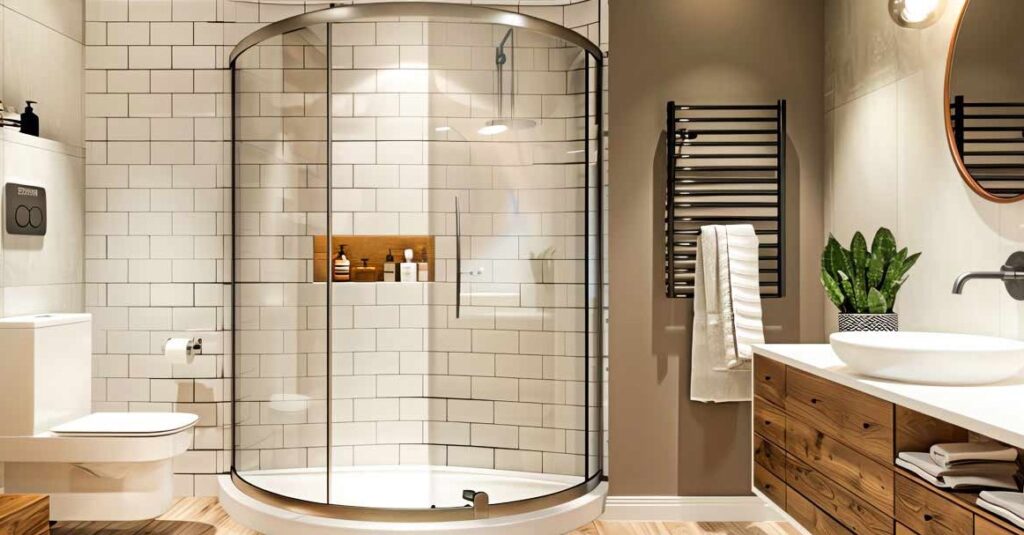
Drawbacks You Should Consider
As practical as they may seem, prefab options aren’t without their faults. Weighing these drawbacks is essential before committing to a purchase.
1. Design Limitations
Customization is not their strong suit. While modern kits include a variety of finishes, the options pale in comparison to custom tile or stone. For a homeowner dreaming of intricate mosaics, prefab won’t deliver.
2. Durability Varies
Lower-cost units often sacrifice material quality. Fiberglass, a common material, is lightweight but prone to scratches and discoloration over time. Higher-end acrylic models last longer but drive up the price.
3. Size Restrictions
Prefab kits fit standard dimensions. If your bathroom falls outside the usual measurements, custom solutions may be the only viable choice.
4. DIY Doesn’t Always Mean Easy
The promise of simple installation can be misleading. Uneven floors or plumbing misalignments can quickly turn into headaches. Professional assistance may still be necessary.
Material Choices and Their Impact
The material determines much of a unit’s longevity and aesthetic. Here are common options to consider:
- Fiberglass ─ Affordable and lightweight, but less durable over time.
- Acrylic ─ More resistant to wear, with a sleek finish. Best for families or high-traffic bathrooms.
- Stone resin ─ A premium choice offering both durability and a luxurious look, though it’s heavier and pricier.
- Glass doors ─ Found in upscale kits, providing a modern feel. Tempered glass such as those available at directsplashbacks.com ensures safety and durability. They not only enhance aesthetics but also provide extra moisture resistance—key for bathroom longevity. Custom options offer a variety of finishes, making it easier to match any design preference while ensuring durability.
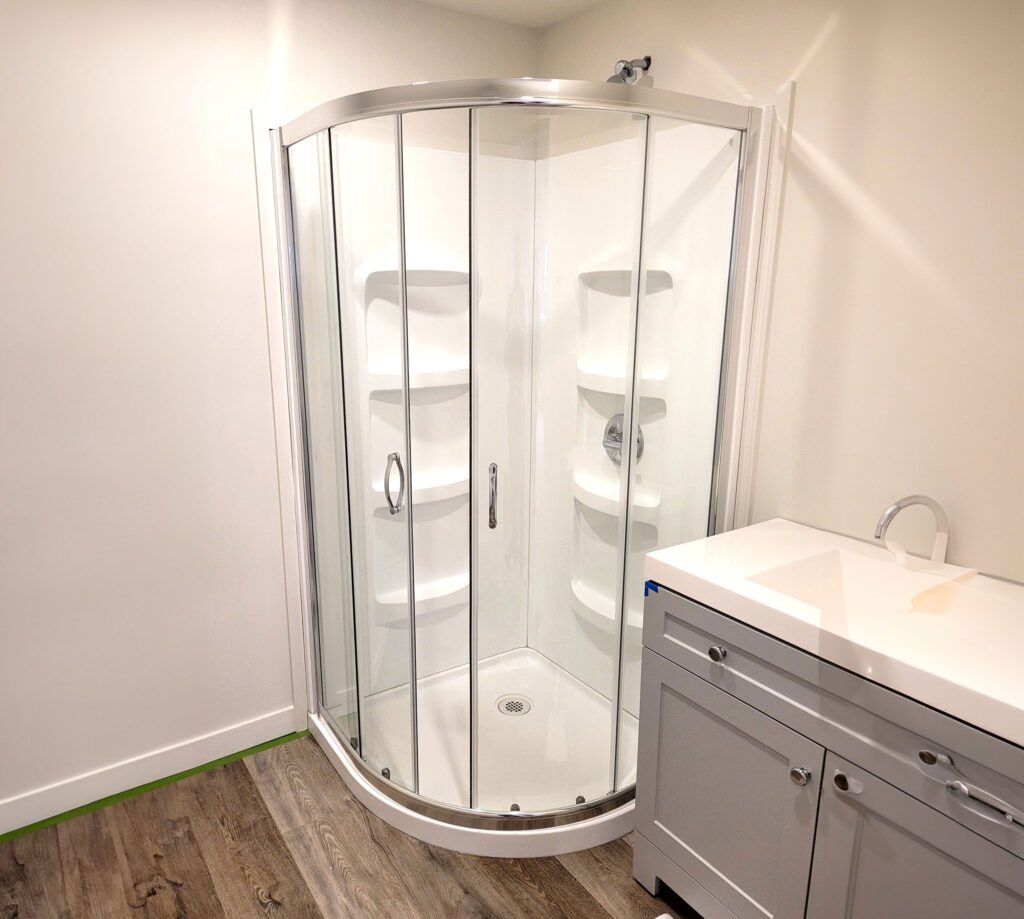
Prefab Shower Kits vs. Custom Solutions
When choosing between prefab kits and custom showers, consider how each aligns with your priorities:
| Feature | Prefab Kits | Custom Showers |
| Cost | Affordable | Expensive |
| Installation Speed | Fast (1-2 days) | Slow (1-3 weeks) |
| Design Variety | Limited | Endless |
| Durability | Depends on material | High |
| Waterproofing | Seamless integration | Relies on proper sealing |
Who Benefits Most From Prefab Kits?
Prefab options suit specific groups perfectly:
- Budget-conscious homeowners ─ Ideal for saving costs without sacrificing functionality.
- Landlords ─ Quick upgrades increase rental appeal with minimal investment.
- DIY enthusiasts ─ Perfect for those confident in taking on simple installations.
- Renovators with time constraints ─ A speedy way to modernize a dated bathroom.
Trends Driving Prefab Popularity
Eco-conscious materials and modular designs are the latest trends in prefab products. The National Association of Home Builders reports that 38% of renovations now include energy-efficient solutions, such as water-saving showerheads.
Many prefab units are adapting to these demands, integrating sustainable features without raising costs significantly.
FAQs
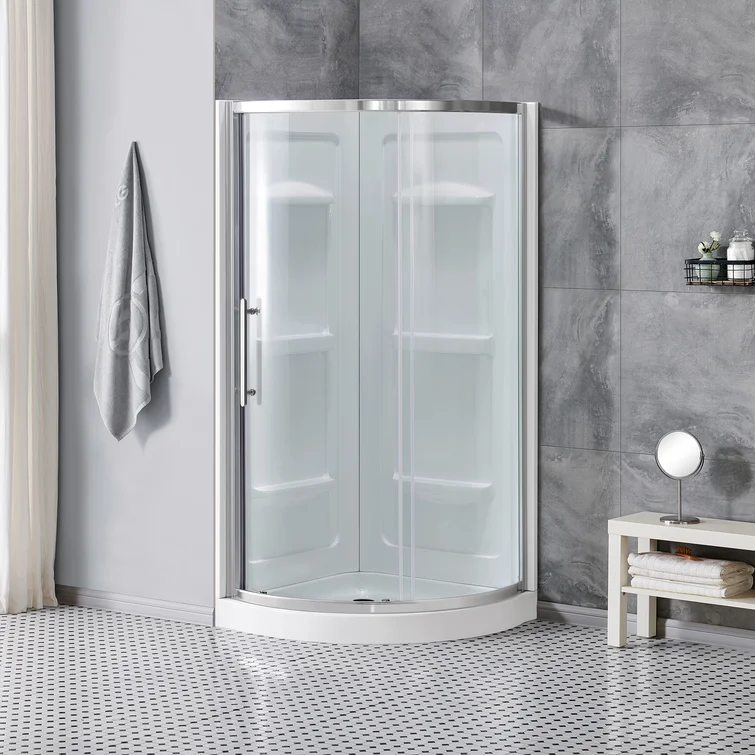
1. Are prefab kits good for uneven floors?
Some kits include adjustable bases, but significant unevenness may require professional leveling.
2. Can prefab units handle high water pressure?
Yes, high-quality kits are designed for durability and can withstand standard water pressure. Always check specifications.
3. How do I clean prefab materials?
Use non-abrasive cleaners and a soft cloth to prevent scratching. Avoid harsh chemicals, especially on fiberglass.
4. Are prefab units recyclable?
Some newer models use recyclable materials but always confirm with the manufacturer.
5. Do prefab kits include showerheads or faucets?
No, these are usually sold separately, allowing buyers to customize their hardware choices.
Final Thoughts
Prefab shower kits simplify the renovation process without draining your wallet. Though they aren’t as customizable as traditional showers, their convenience and affordability make them a solid choice for many homeowners.
Decide based on your needs, budget, and bathroom layout. Sometimes, a practical solution beats a perfect one, and prefab kits offer just that balance.

